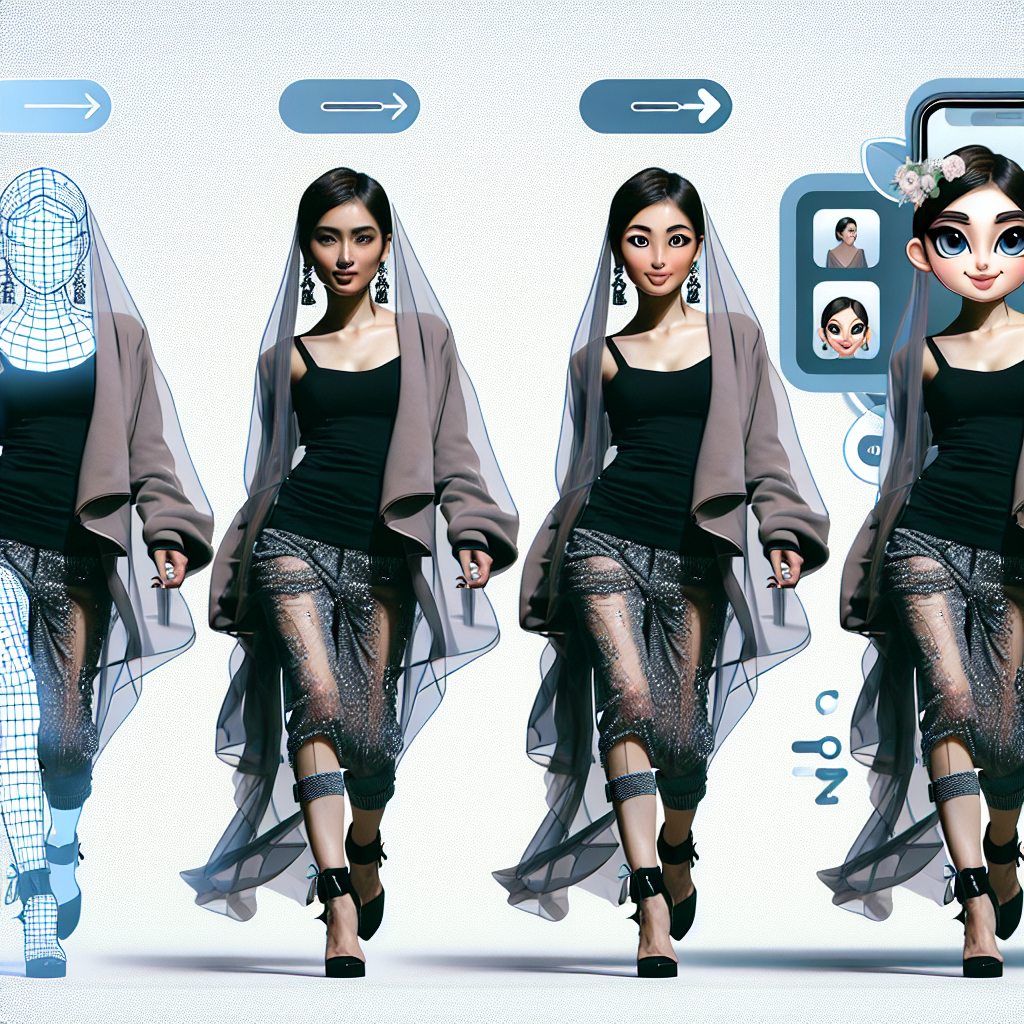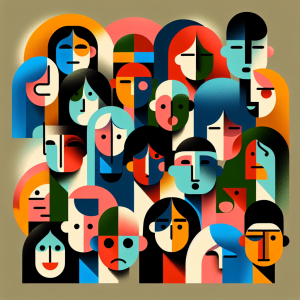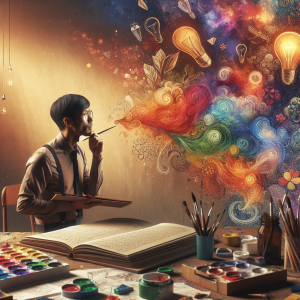Imagine a world where your selfie can become a charming cartoon, a glamorous runway model, or even a fantastical creature—all at the tap of a button. Welcome to the era of face apps! These digital marvels are not just tech novelty; they’re a revolution in self-expression, creativity, and how we perceive ourselves and each other. Let’s dive into this fascinating journey from reality to the imaginative realms of our dreams.
Touching the Digital Canvas: A New Age of Creativity
The canvas of self-expression has expanded, crossing boundaries as far as our imagination allows. Face apps like Snow, Snapchat, and TikTok filters enable users to transform their features, playing with colors, shapes, and styles in ways that traditional media might not allow.
With a few swipes and clicks, users can not only enhance their appearance but also create entirely new characters. Want to be a trendy fairy or a rugged adventurer? Just a filter away! This democratization of art allows everyone, regardless of their artistic skill, to become creators of their own visual narratives.
A Mirror to Our Inner Worlds
Face apps serve as mirrors reflecting our moods, desires, and fantasies. They enable users to experiment with different identities, allowing them to explore aspects of themselves they might not express in their day-to-day lives. Feeling empowered? Go for a bold look! Feeling whimsical? Why not try that magical unicorn filter!
This playful approach can have profound implications on self-esteem and personal identity. Many users report feeling empowered and more confident when using these apps, as they can portray their most aspirational selves. The ability to curate how we present ourselves online can lead to richer self-exploration and acceptance.
The Psychology Behind Self-Expression
It’s not just fun and games; there’s psychology at play here as well! Psychologists have long understood that self-expression can improve mental health. Creative outlets allow individuals to process their emotions and engage with their identities more deeply.
Face apps can provide a safe space for users to explore their emotions. One moment, you’re a vibrant pop art piece; the next, a serene nature spirit. This fluidity offers a unique way to connect with our feelings without the fear of judgment.
Social Media: The New Runway
Social media platforms have transformed our reality into a perpetual runway show. Users flaunt stunning selfies, breathtaking transformations, and quirky styles, making it a hub of creativity and connection. The interplay of likes, shares, and comments invokes a sense of community, and the comments can inspire new trends and ideas.
Moreover, when influencers and celebrities use these filters, they often set the stage for what’s “in” or “out.” The impact of such visibility cannot be overstated—people feel encouraged to try new things inspired by their favorite icons, thereby promoting a culture of creativity!
From Filters to Fashion: A Guide to the Evolution of Self-Expression
As fashion evolved, so did our means of self-expression. From the flamboyant styles of the past to the subtle aesthetics of the modern age, we have seen it all. Yet, face apps are now taking that evolution to a whole new level. The collaboration between the fashion world and tech is monumental.
Designers are partnering with tech companies to create augmented reality (AR) experiences. Just think about it! You can virtually try on clothes or accessories using only your phone. This idea has already kicked off, with brands allowing customers to visualize themselves in various outfits without ever setting foot in a store. Talk about convenience!
Challenges and Concerns: Knowing Your Limits
While the advancements of face apps offer fantastic opportunities for creativity, there’s a flip side to this coin. As with any technological innovation, the rise of face apps brings concerns over mental health, self-image, and reality perception.
Many users have reported times when their online persona felt disconnected from their real-life selves. For some, this disparity can lead to feelings of inadequacy, especially when subjected to unrealistic standards portrayed by these filters.
It’s crucial to maintain a balanced perspective and remember that what we see is not always what’s real. Using filters can be fun, but it should not overshadow our authentic selves.
The Future of Face Apps: What Lies Ahead
As technology advances, the capabilities of face apps will grow exponentially. We’re likely to see enhanced personalization features, allowing users to tweak filters to their unique preferences. For instance, imagine a day when you could design a filter that embodies your unique style—complete with all your favorite colors and animations!
The integration of artificial intelligence (AI) will also play a significant role. AI can learn from users’ preferences, suggesting filters or styles that align with their tastes. The potential of AR technology expands the horizon even further, giving rise to immersive experiences where users can participate in augmented environments.
Embracing Authenticity: The Balance of the Filter
While we cherish our virtual transformations, it’s essential to embrace our authentic selves. It’s all about balance; the goal of face apps should enhance our self-expression without veering into the territory of false representations. It’s okay to appreciate the fun of filters while still loving the skin you’re in!
Ultimately, self-expression isn’t solely about how we dress up or present ourselves online; it’s about showcasing who we are, inside and out. The journey you take through face apps can be a part of that discovery process.
Conclusion: Your Digital Playground
As we venture further into this digital playground, the possibilities for self-expression continue to expand. Face apps do more than just transform appearances—they play a vital role in shaping our identities, fostering creativity, and inviting a sense of community.
So, go ahead, experiment with that cartoon filter, give yourself a glamorous makeover, or explore that avant-garde look! In this new age, the only limit to self-expression is your imagination.
Frequently Asked Questions (FAQ)
What are face apps, and how do they work?
Face apps are applications that use augmented reality and image processing technologies to apply filters and effects to users’ faces. These effects can range from minor enhancements, like skin smoothing, to full transformations, such as turning a person into an animated character or adding festive makeup. They work through facial recognition technology that detects key points on the face to apply the chosen effect in real-time.
Are face apps safe to use?
Generally, face apps are safe to use, but users should be cautious about privacy concerns. Some apps collect personal data and images, so it’s essential to read the privacy policy. Ensuring the app has a good reputation and understanding what data is being collected can help in maintaining security.
Can using face apps impact self-esteem?
Yes, using face apps can have both positive and negative effects on self-esteem. On the one hand, they can allow for creative expression and can boost confidence when users feel empowered by their edited images. Conversely, over-reliance on these apps may lead to feelings of inadequacy when comparing oneself to idealized versions presented by others or the filters. Balancing how and when we use them is key to a positive experience.
Will face apps continue to evolve?
Absolutely! The technology behind face apps is continually evolving, with advancements in AI, machine learning, and AR. We can expect more personalized, realistic, and immersive experiences in the future, making them even more integrated into our daily lives.
How can I use face apps while maintaining authenticity?
To maintain authenticity while using face apps, set boundaries for yourself. Use filters for fun or creative expression, but also spend time sharing unfiltered photos that represent your true self. Remember, these apps should enhance your identity rather than replace it. Finding joy in both your digital persona and your authentic self creates a healthy balance.








+ There are no comments
Add yours